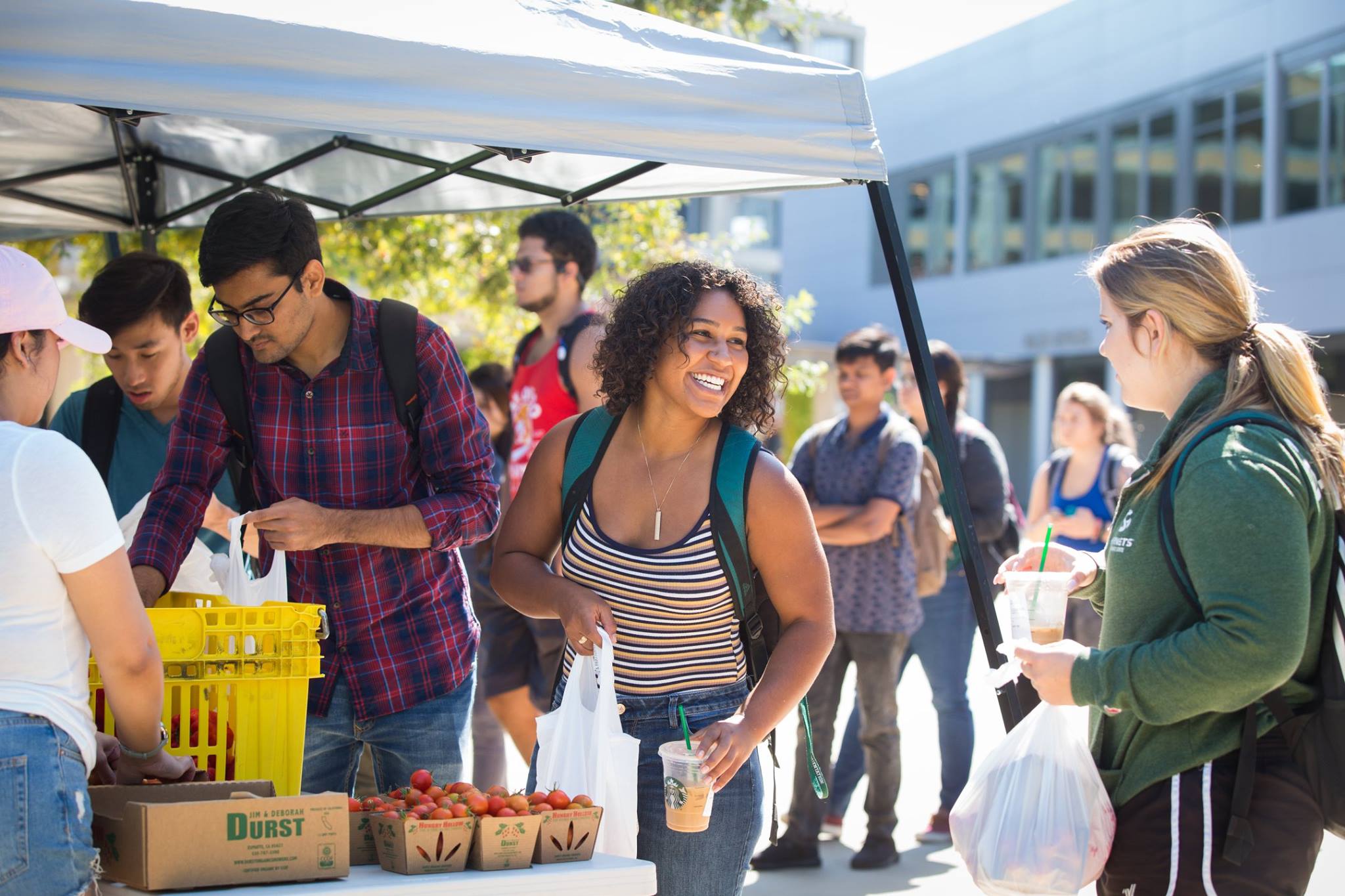 Support for students by Associated Students Inc. and many other organizations is part of the University's effort to meet the Sac State community's basic needs. (Sacramento State/Jessica Vernone)
Support for students by Associated Students Inc. and many other organizations is part of the University's effort to meet the Sac State community's basic needs. (Sacramento State/Jessica Vernone)Sacramento State is committed to making a difference in the lives of students who struggle to cover the cost of living day-to-day.
The Basic Needs Resource Fair – 11 a.m.-2 p.m. Thursday, March 7, in the University Union, Ballroom 3 – brings to campus experts from more than a dozen local agencies who will assist students with their food and housing needs, health insurance, crisis support, childcare, public benefits programs, and more.
Students also can sign up for CalFresh, the federal program that provides qualified individuals with monthly cash benefits to purchase groceries.
“We want our students to know that there is a lot of community support available in their time of need, and that they are not alone,” says Danielle Muñoz, Sac State’s case manager.
Agencies scheduled to participate include: SMUD, PG&E, Sacramento Department of Human Assistance, CalWORKS, County of Sacramento Homeless Services, Sacramento Covered, Sacramento County Access Team, Sacramento Self-Help Housing, Wind Youth Services, 2-1-1 Sacramento, My Sister’s House, WEAVE, Sacramento Crisis Nursery, TLCS Crisis Respite, California Department of Rehabilitation, Wellspring Women's Center, and the Associated Students, Inc. (ASI), Food Pantry.
While not a part of the resource fair, the ASI Food Pantry in Yosemite Hall 163 will be open 10 a.m.-2 p.m. March 7 to serve students. The pantry’s regular hours are: noon-3 p.m. Mondays and Fridays, 10 a.m.-2 p.m. Tuesdays and Thursdays, and 2-6 p.m. Wednesdays.
Students with a valid OneCard may visit once a week to shop for food and toiletries.
A California State University survey published in 2018 suggests that as many as 1 in 10 – or approximately 3,000 – Sacramento State students faced homelessness or an uncertain housing situation during their time at the University. It also shows that about 14,000 have experienced food insecurity while at Sac State. The region’s high housing costs receive some of the blame; students sometimes must choose between buying groceries and paying rent. Some end up homeless, sleeping in their car, at a shelter or on friends' couches.
Students facing desperate situations can turn to several Sac State programs for help, including short-term emergency housing on campus, emergency grants and loans, fresh produce through the ASI Pop-Up Pantry, and professional clothing for job interviews and internships. – Dixie Reid
